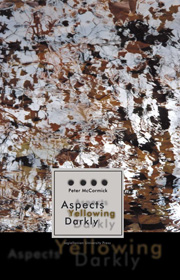 Aspects Yellowing Darkly
Aspects Yellowing Darkly Book contents
- Frontmatter
- Dedication
- Epigraph
- Contents
- PREFACE
- ORIENTATIONS – Moral Intuitionisms and the Emerging Europe
- PART ONE FIRST READINGS
- Chapter One Versions of Modernity
- Chapter Two Moral Discourse and Figurative Articulations of Suffering in T.S. Eliot
- Chapter Three Moral Knowledge and Perceptions of Suffering in Paul Valéry
- Chapter Four Moral Motivation and Suffering in Eugenio Montale
- INTERLUDE
- PART TWO SECOND THOUGHTS
Chapter Four - Moral Motivation and Suffering in Eugenio Montale
from PART ONE - FIRST READINGS
Published online by Cambridge University Press: 05 September 2014
- Frontmatter
- Dedication
- Epigraph
- Contents
- PREFACE
- ORIENTATIONS – Moral Intuitionisms and the Emerging Europe
- PART ONE FIRST READINGS
- Chapter One Versions of Modernity
- Chapter Two Moral Discourse and Figurative Articulations of Suffering in T.S. Eliot
- Chapter Three Moral Knowledge and Perceptions of Suffering in Paul Valéry
- Chapter Four Moral Motivation and Suffering in Eugenio Montale
- INTERLUDE
- PART TWO SECOND THOUGHTS
Summary
The objective of our previous chapter was informally to confirm a second rough working hypothesis about another aspect of moral intuition. According to that hypothesis, some critical and reflective readings of Paul Valéry's European high modernist poetic representations of varied interactions between world, body, and mind in his very extensive Cahiers open up fruitful perspectives on the nature of the kinds of perception peculiar to acquiring genuine moral knowledge through moral intuitions.
By way of showing the philosophical interest for a better understanding of moral intuitionism and suffering for perhaps enlarging the scope of much work on moral epistemology today in view of putting more of that work at the disposal of ongoing reflections in the European Union on an eventual common social policy, our focus was Valéry's reflection on his own poetic practices of articulating his artistic intuitions.
Before turning to that work in detail, however, we considered one general objection to our somewhat unconventional appeal in these chapters to poetic representations of moral situations rather than to psychological or philosophical analyses only of moral intuitions. And we tried to respond to that objection generally by developing an analogy from contemporary procedures in the emerging field of particle astronomy.
We then looked at Valéry's voluminous work broadly in order to sharpen our understanding of what his literary work seemed to be representing only indirectly.
- Type
- Chapter
- Information
- Aspects Yellowing DarklyEthics, Intuitions, and the European High Modernist Poetry of Suffering and Passage, pp. 91 - 110Publisher: Jagiellonian University PressPrint publication year: 2010


